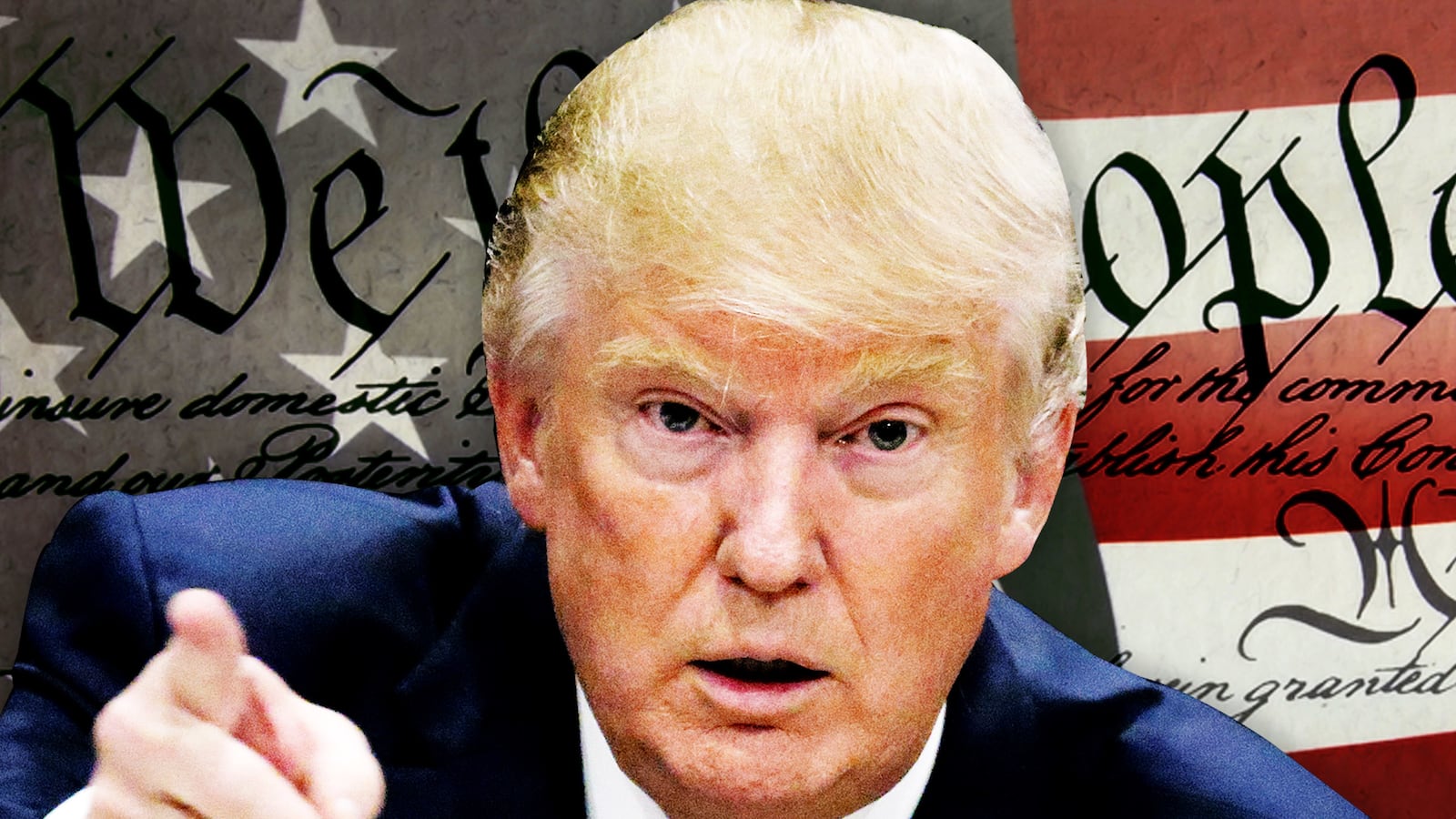President-elect Donald Trump behaves as if he were a nightmarish caricature dreamed up by some bored ACLU staffers. On Tuesday morning, he went on yet another one of his tweetstorms to help prove that very point.
“Nobody should be allowed to burn the American flag—if they do, there must be consequences—perhaps loss of citizenship or year in jail!” Trump posted early Tuesday.
The Republican was likely reacting to the controversy at Hampshire College, a culture-war story that involved at least one student allegedly burning a flag in protest of Trump’s election victory. (The story has been blasted on Fox News a lot lately.)
To get the throat-clearing out of the way, it is true that Hillary Clinton, Trump’s former presidential rival, once co-sponsored a bill to criminalize burning of the American flag.
Also, Trump has a lot going on right now during the presidential transition, and it is fair to assume that at least some of his tweets will be sent out during this period with the intent of diverting attention from stories he wishes the press would cover less.
However, Tuesday’s call to imprison and possibly strip U.S. citizenship from American flag-burners (punishments that would be blatantly unconstitutional and completely ludicrous) is merely one more example of how the soon-to-be leader of the free world and commander of the world’s foremost national-security apparatus views the First Amendment and free expression.
He views them with utter contempt.
Trump declared during the campaign that he as president would expand libel laws to make it easier for him to sue outlets that give him coverage he finds unacceptable or too mean.
“One of the things I’m going to do if I win… I’m going to open up our libel laws so when they write purposely negative and horrible and false articles, we can sue them and win lots of money,” Trump said at a rally in February. “We’re going to open up those libel laws. So when The New York Times writes a hit piece which is a total disgrace or when The Washington Post, which is there for other reasons, writes a hit piece, we can sue them and win money, instead of having no chance of winning because they’re totally protected.”
“We’re going to have people sue you like you've never got sued before,” he continued. (Donald Trump, in his pre-politics days, had a habit of suing people, places, and things whenever he felt like it.)
In late 2015, Trump’s big plan to counter Islamist terror was to “strongly consider” shutting down mosques in the United States, the First Amendment’s protection of free exercise of religion be damned.
“I would hate to do it, but it would be something that you’re going to have to strongly consider because some of the ideas, some of the hatred—the absolute hatred—is coming from these areas,” Trump said on MSNBC. He then tried to hedge this statement by saying that closing American mosques is “something that many people—not me—but many people are considering and many people are going to do.”
This wasn’t a one-off statement fantasizing about tearing apart constitutional rights. Earlier that year, Trump was asked on Fox Business about British Prime Minister David Cameron’s proposal to shutter mosques if a worshiper is found to be linked to ISIS.
“Would you do the same thing in America?” the host asked him.
“I would do that, absolutely, I think it’s great,” Trump replied.
Furthermore, during the Republican primary, Trump also floated a proposal of “closing that Internet up” in an effort to combat jihadism—a tactic favored by authoritarians and despots.
“Somebody will say, ‘Oh, freedom of speech, freedom of speech’—these are foolish people,” Trump said during a speech last December. “We have a lot of foolish people. We have a lot of foolish people.”
Much of the reaction to, and sharp criticism of, Trump’s anti-flag-burning tweet on Tuesday isn’t unfounded liberal hysterics, or overreaction to a bizarre but isolated incident. Trump’s tweet is part of a clear pattern that the next president of the United States has exhibited towards the very idea of free expression and the most basic of American rights.






